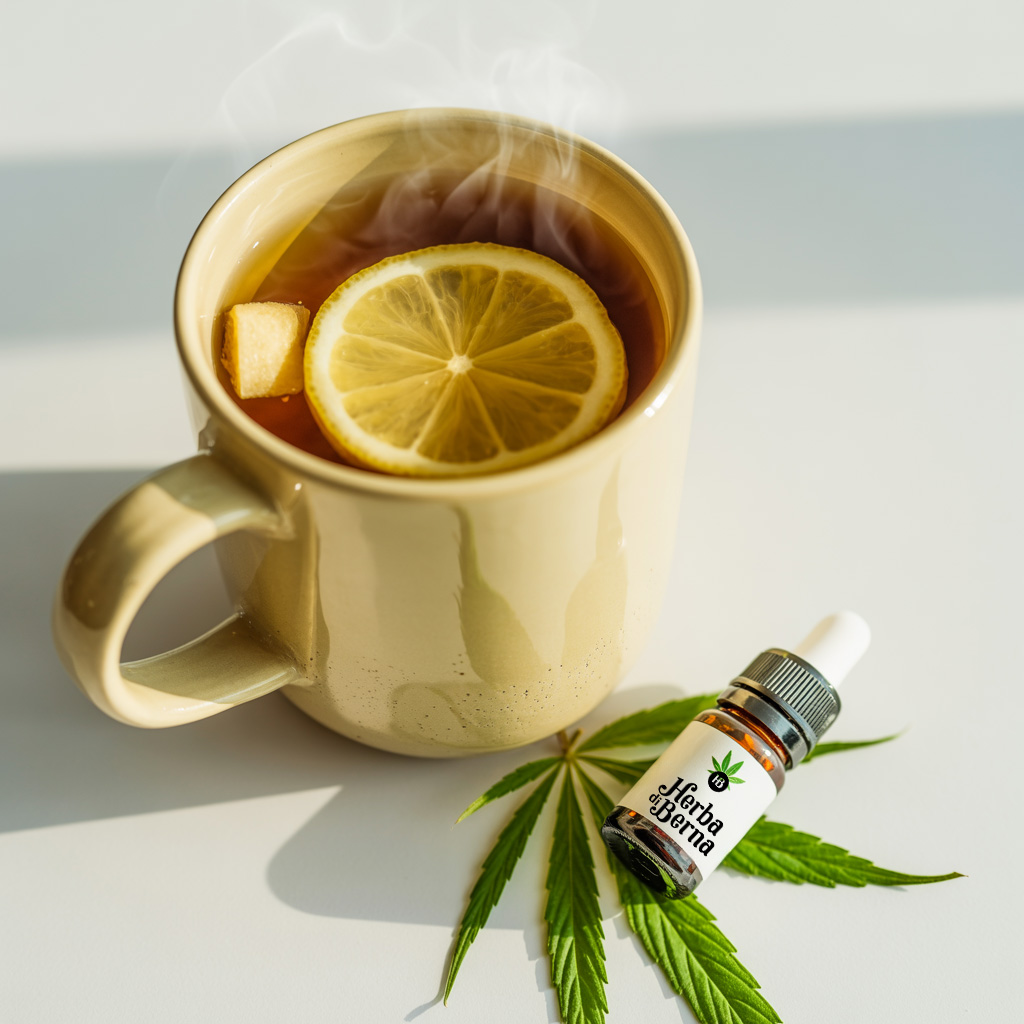
CBD for colds the most important first:
Always ask your doctor: When taking medication, the use of CBD should always be discussed with a doctor to avoid interactions.
Not a cure: CBD cannot cure a cold or fight viruses, but it can potentially help to alleviate symptoms or get rid of them more quickly.
Focus on symptoms: Scientific evidence points to anti-inflammatory, pain-relieving and sleep-inducing properties of CBD.
Application is crucial: Smoke-free methods such as CBD oil or tea are the more sensible choice for irritated airways. Smoking or vaping should be avoided.
CBD for colds – When the common cold paralyzes everyday life
Your nose is running, your throat is scratchy and your body wants to rest – we know right away that almost everyone catches a cold once a year. While traditional home remedies are indispensable, the use of CBD drops for cold symptoms is increasingly coming into focus. In this article, we shed light on the potential of cannabidiol (CBD) in this context and where its limits lie, based on current findings in 2025 and our philosophy and expertise at Herba di Berna. Going forward, we would like to see research continue to actively explore precisely this medium.

What is a cold actually and can CBD help me with colds ?

A flu-like infection, often referred to as a cold or simple cold, is usually unmistakable: a scratchy throat, runny nose and typical aching limbs. As unpleasant as they may be, these symptoms are a sign that our immune system is working at full speed. It fights the viral invaders with a targeted inflammatory reaction. It is precisely at this stage that many people look for gentle, natural support for their immune system.
This raises the question that more and more people are asking themselves: Does CBD really help with a cold? To answer this clearly: CBD is not a virus killer and therefore not a cure for the common cold itself. The idea that cannabidiol can end the infection is scientifically untenable!
The starting point of products such as hemp drops for colds is different and much more subtle: It’s about alleviating the accompanying symptoms. Instead of fighting the disease directly, CBD can potentially help to regulate the symptoms and make them more bearable. By interacting with our body’s endocannabinoid system (ECS), cannabidiol can help balance an excessive inflammatory response and promote overall well-being. It is therefore not a substitute for the essential things the body needs for recovery – rest, warmth and plenty of fluids – but a possible supplement to support this recovery phase. In the following sections, we look at what current research says about relieving specific symptoms such as a sore throat and how to use it responsibly.
The potential of CBD for typical cold symptoms
Although there are still no large clinical studies directly investigating “CBD for colds” or CBD for flu, research on the properties of cannabidiol provides valuable information. A comprehensive review article from 2020 in the journal “Cannabis and Cannabinoid Research” analyzed a large number of studies on the effect of cannabinoids on the immune system (Nichols & Kaplan, 2020). The key messages are that CBD has been shown to have strong anti-inflammatory properties and can dampen an overactive immune response. This could theoretically be beneficial for the excessive inflammatory reactions of a cold (severe sore throat, swollen mucous membranes). Other studies support its potential to relieve pain (NASEM, 2017) and promote sleep (Shannon et al., 2019).
What does current research say about CBD and the common cold or CBD immune system and the symptoms?
Although there are still no large clinical studies directly investigating “CBD for colds”, research on the properties of cannabidiol provides valuable information. A comprehensive review article from 2020 in the journal “Cannabis and Cannabinoid Research” analyzed a large number of studies on the effect of cannabinoids on the immune system (Nichols & Kaplan, 2020). The key messages are that CBD has been shown to have strong anti-inflammatory properties and can dampen an overactive immune response. This could theoretically be beneficial for the excessive inflammatory reactions of a cold (severe sore throat, swollen mucous membranes). Other studies support its potential to relieve pain (NASEM, 2017) and promote sleep (Shannon et al., 2019).
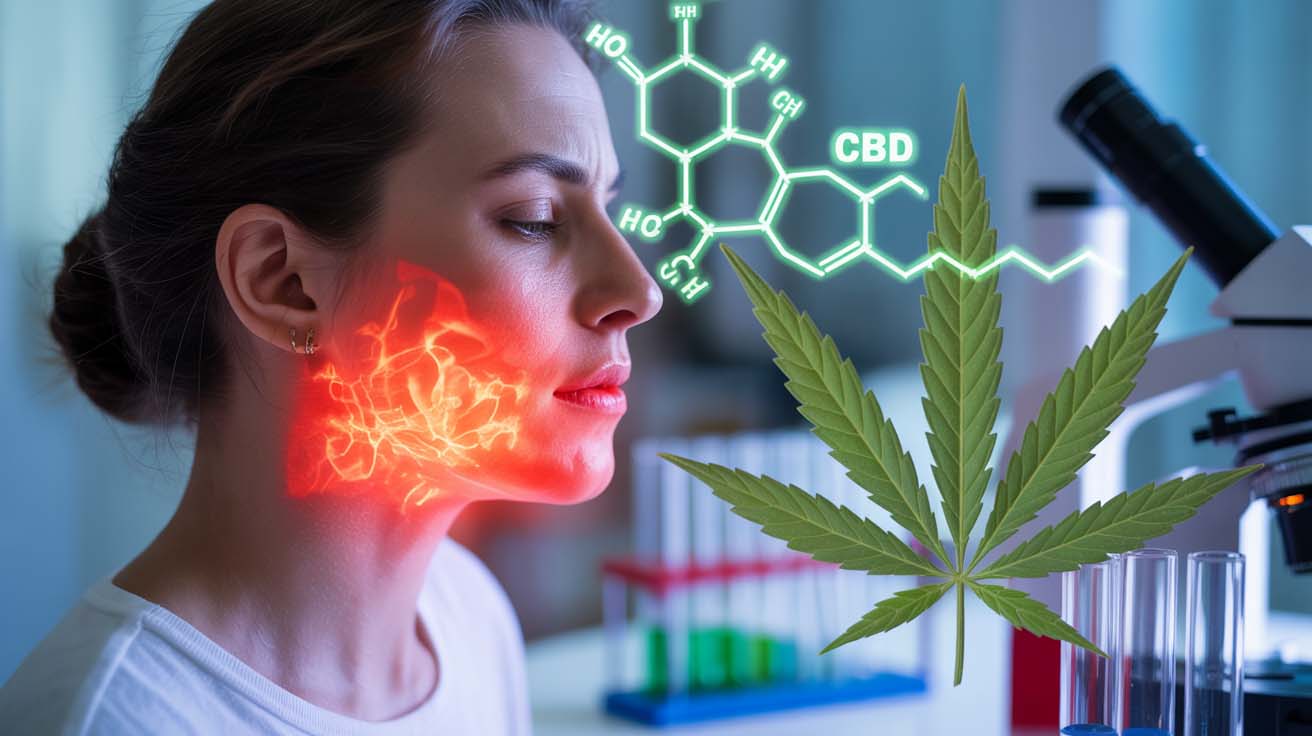
Practical application options for a cold with CBD
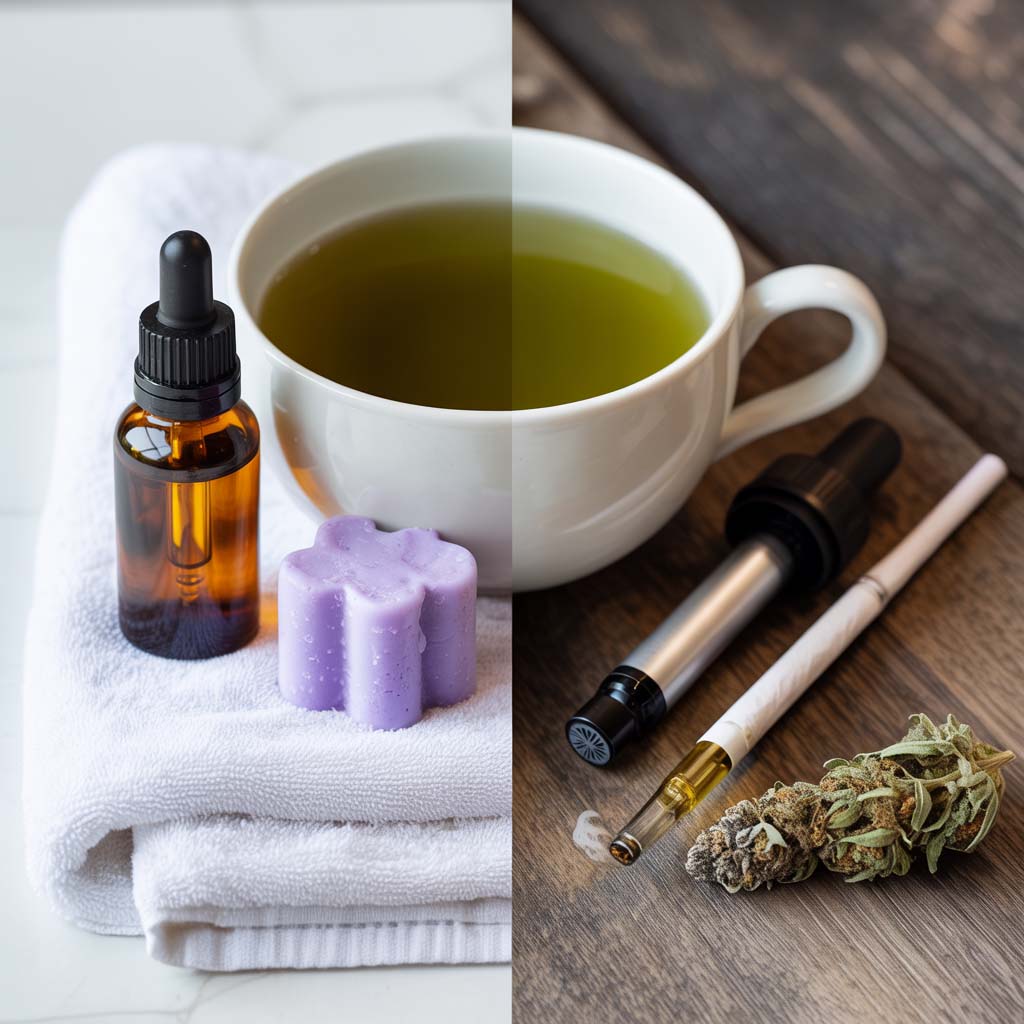
When considering CBD for support during a cold, choosing the right form of application is crucial to avoid putting additional strain on already irritated airways.
Methods to avoid: Smoking or vaping CBD flowers during a cold is strongly discouraged, as the smoke or vapor can further irritate the sensitive mucous membranes in the throat and bronchial tubes and worsen the cough.
CBD oil: This is often the most sensible method. The drops are placed under the tongue and absorbed through the oral mucosa. This is gentle and the dosage can be controlled very precisely.
Hemp tea: A warm tea is a classic home remedy. Combining it with hemp tea or adding a few drops of CBD oil to a herbal tea can be very beneficial and also provides important hydration.
CBD care products: A warm bath with a relaxing CBD bath additive can help with aching limbs and for general relaxation before going to bed.
CBD for colds : Interactions with medication
This is a crucial point for responsible use. CBD is metabolized in the liver by the same enzymes as many common drugs, including some painkillers and antibiotics. Taking them at the same time can unpredictably increase or decrease the effects of these medications. Therefore, if you are taking medication, you should always discuss the use of CBD with your doctor beforehand.
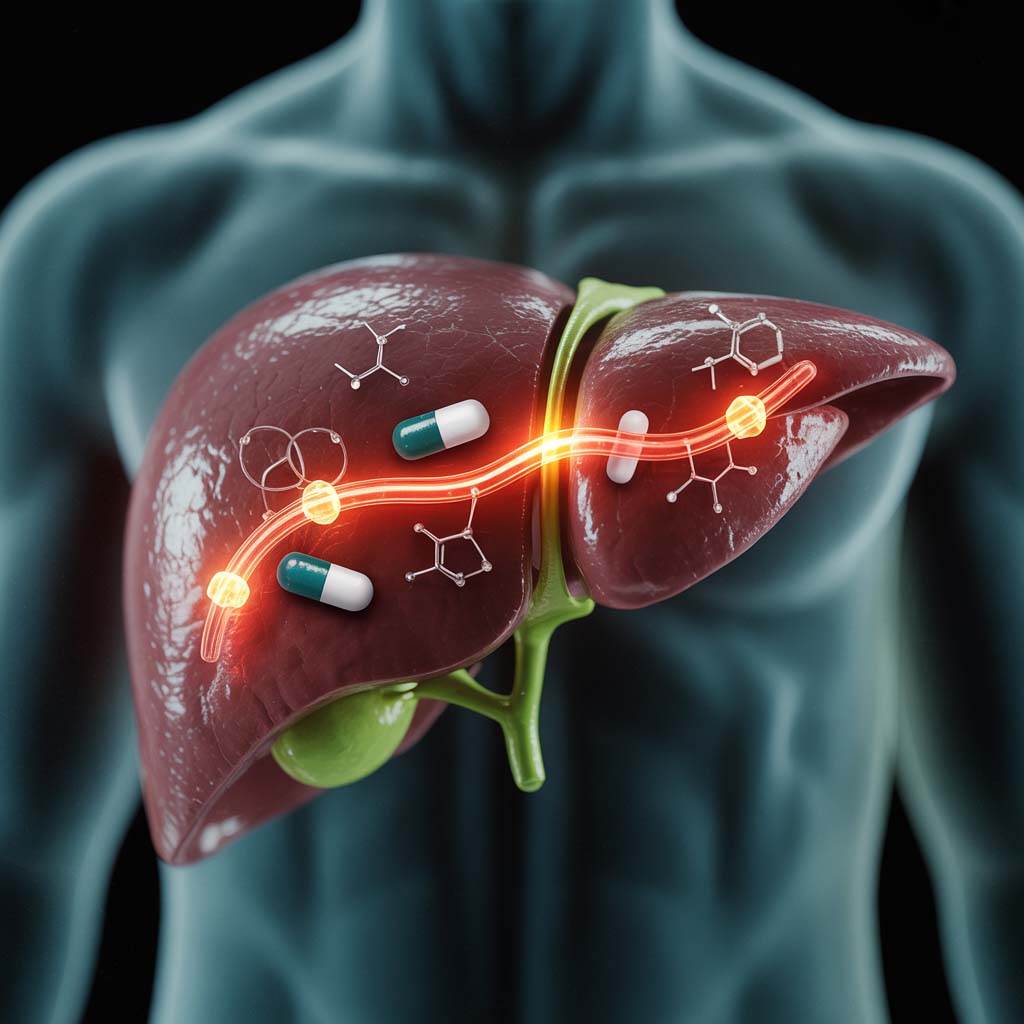
The legal framework in Switzerland
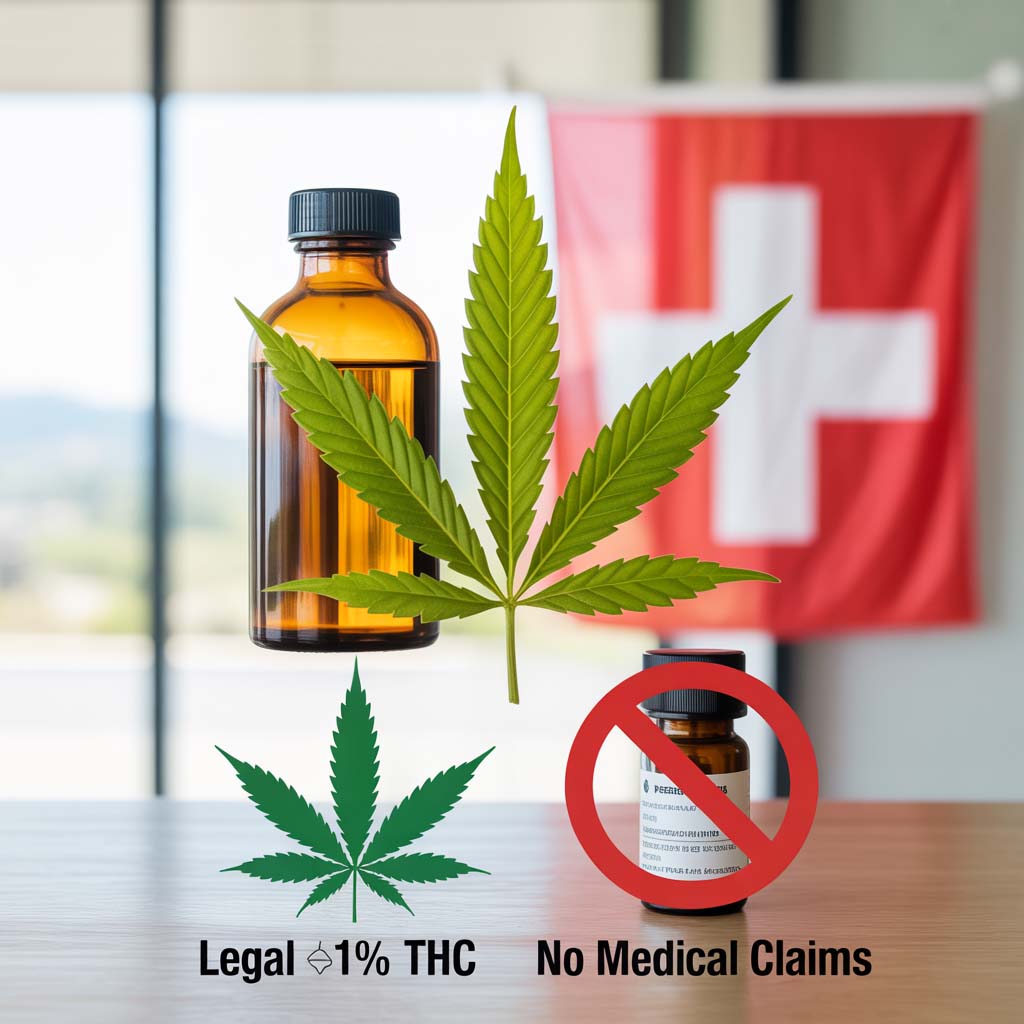
In Switzerland, CBD products are legal as long as their THC content is below 1%. This limit is clearly defined in Swiss law and ensures that CBD products can be sold freely – unlike in many neighboring countries with stricter regulations.
All our products naturally meet these legal requirements and are regularly tested.
It is also important to understand: CBD products are legally classified as cosmetics. They may therefore not be advertised with healing promises, but are classified as wellness and lifestyle products. It is precisely this responsible handling of the plant that is particularly important to us at Herba di Berna.
CBD for colds our Herba di Berna food for thought
At Herba di Berna, we see the hemp plant as a holistic companion. For us, using CBD for a cold is part of a comprehensive self-care strategy. It’s about listening to your body and giving it the rest and support it needs to recover. This includes getting enough sleep, a nutrient-rich diet – in which our [link to hemp foods] can also play a role – and conscious moments of relaxation. In this context, CBD can be a wonderful supplement to support the body in its natural regeneration phase.
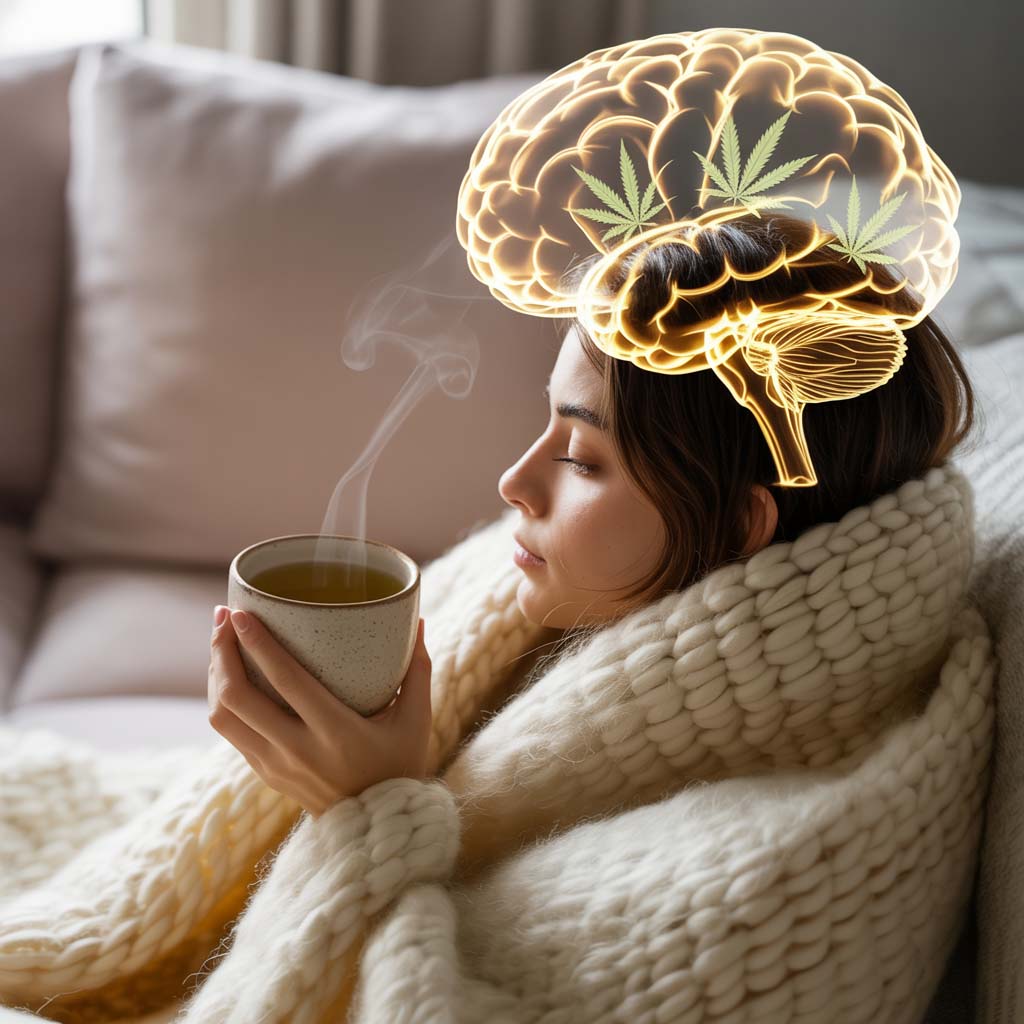
CBD bei Erkältung FAQ❓➕
Heilt CBD eine Erkältung direkt?
No, it is important to understand that CBD does not fight viruses. However, it can be a valuable support to alleviate typical cold symptoms such as inflammation-related pain or sleep problems and thus promote general well-being during recovery.
Hilft CBD mir, besser zu schlafen, wenn ich krank bin?
Yes, this is one of the most frequently cited benefits. Many users report that CBD contributes to evening relaxation and promotes a more restful sleep. Restful sleep is absolutely crucial for the regeneration of the immune system during a cold.
Wie dosiere ich CBD-Öl richtig, wenn ich erkältet bin?
There is no specific “disease dose”. It is recommended to continue with the normal dose or to start with a low dose (a few drops, 1-2 times a day) and observe how the body reacts. More important than a high dose is regularity.
Kann CBD bei Halsschmerzen und Gliederschmerzen helfen?
Due to its well-researched anti-inflammatory and pain-relieving properties, CBD can potentially help alleviate these typical cold symptoms. It helps the body to find a balance in dealing with the inflammatory response.
Kann ich CBD vorbeugend einnehmen, um Erkältungen zu vermeiden?
There is no scientific evidence for this. CBD is not an “immune booster” that prevents infections. It serves to support the general balance in the body, not as a preventative defense against viruses.
Kann ich CBD zusammen mit Erkältungstee oder Medikamenten einnehmen?
The combination with herbal teas such as camomile or ginger is absolutely harmless. However, if you are taking medication at the same time (especially prescription medication), you should always seek medical advice beforehand, as CBD can affect the metabolism of some active ingredients.
CBD for colds Conclusion: a responsible path to balance
CBD for colds can be a valuable, natural support to make the recovery phase more pleasant. It is not a miracle cure, but it is a tool that can help to alleviate cold symptoms and to find the sleep that is so important for healing. As part of a mindful approach to your own body, it is a useful addition to tried and tested home remedies.
Discover our CBD oil category now and take a step towards balance.
Quellenliste
Nichols, J. M., & Kaplan, B. L. F. (2020). Immune Responses Regulated by Cannabidiol. Cannabis and Cannabinoid Research, 5(1), 12-31.(Source)
Shannon, S., et al. (2019). Cannabidiol in Anxiety and Sleep: A Large Case Series. The Permanente Journal, 23, 18-041(Source).
National Academies of Sciences, Engineering, and Medicine. (2017). The Health Effects of Cannabis and Cannabinoids. The National Academies Press.(Source)




